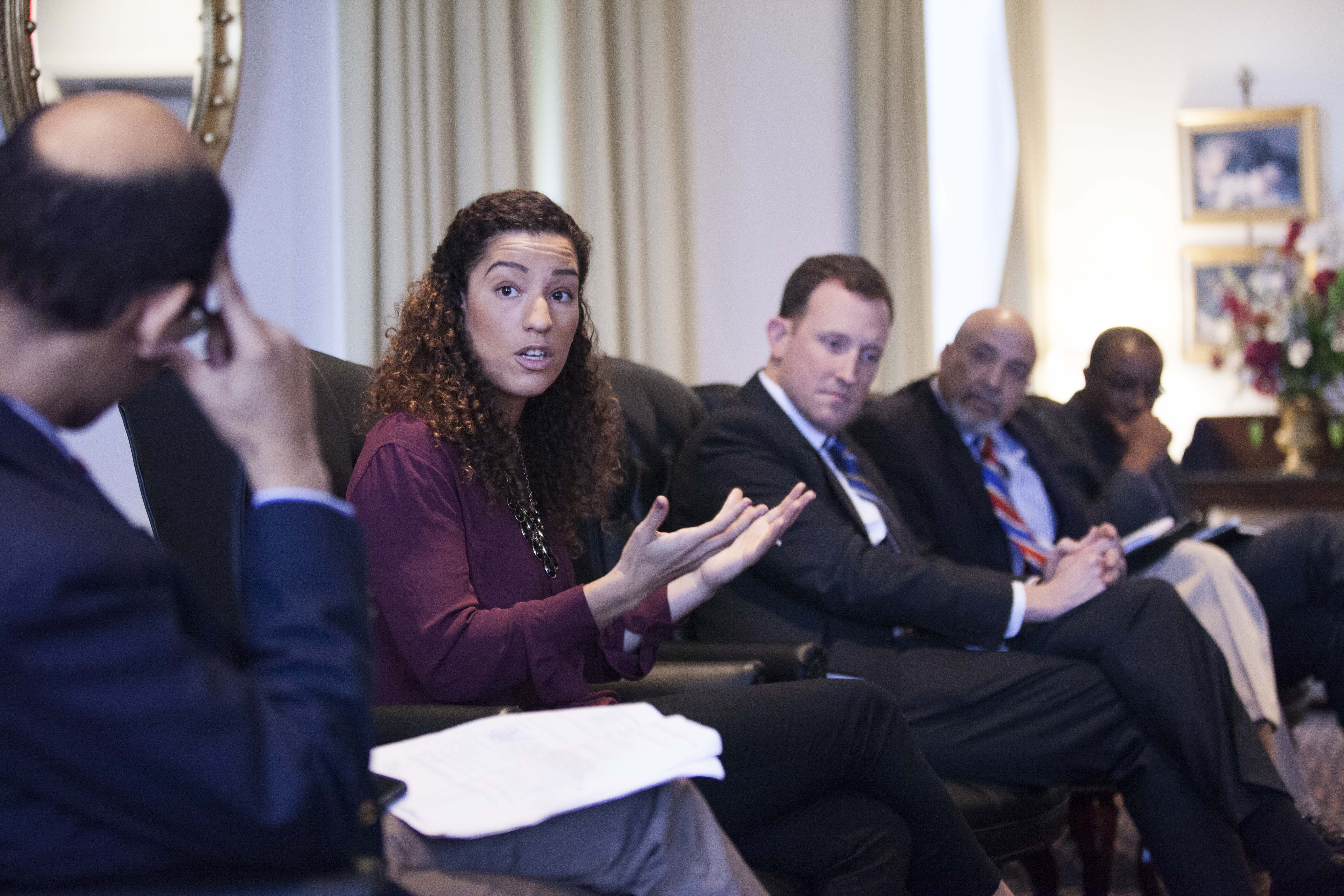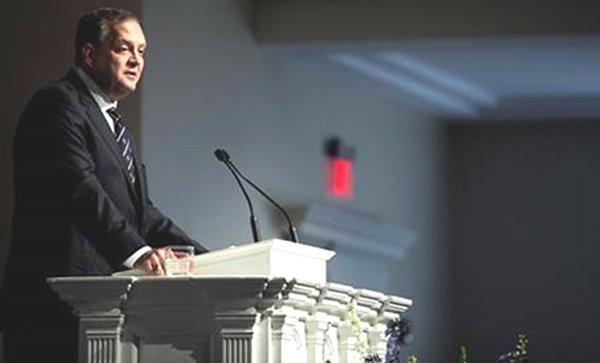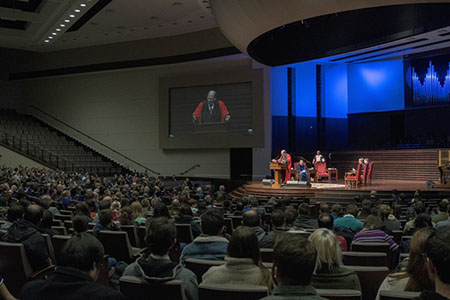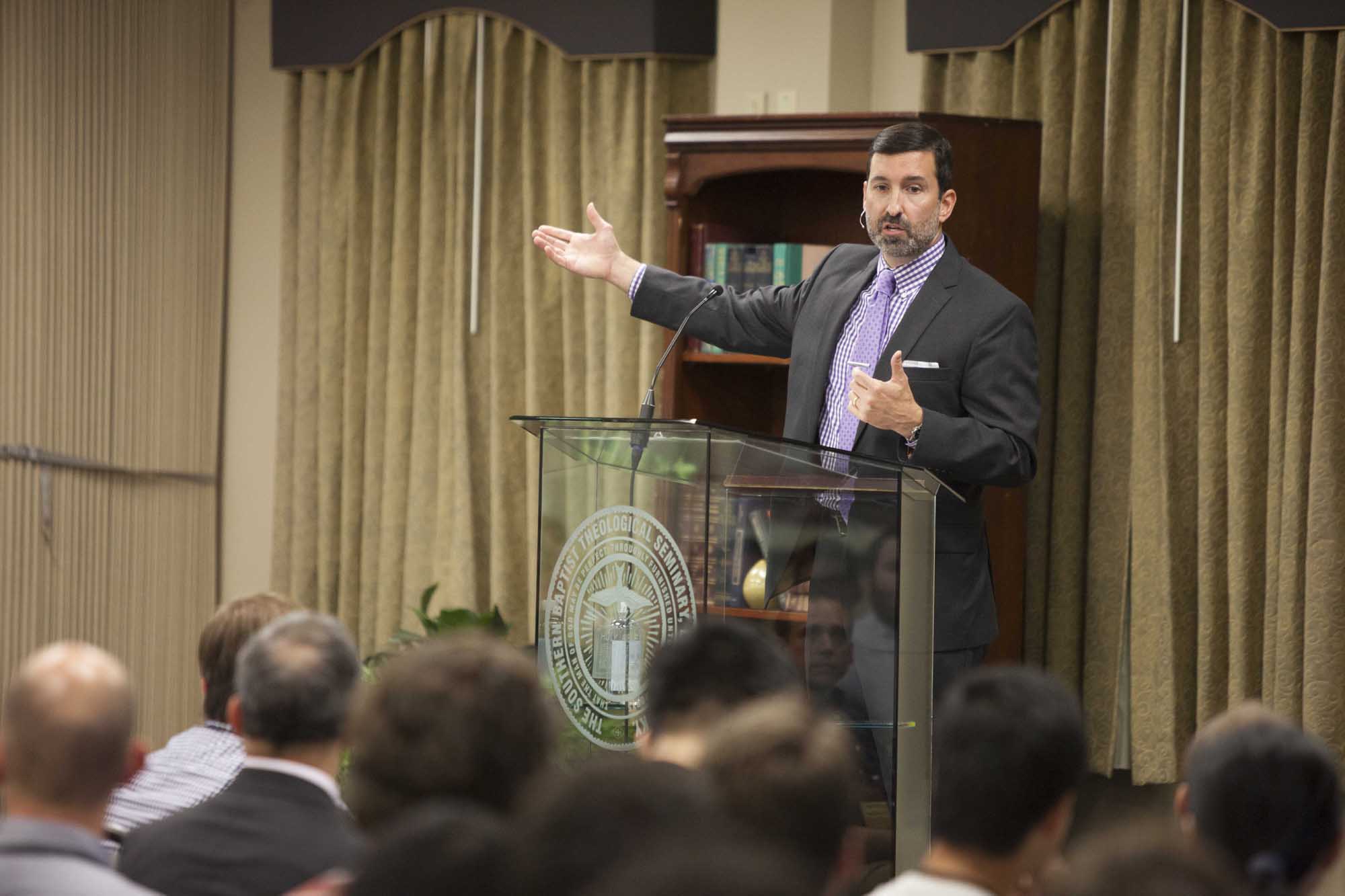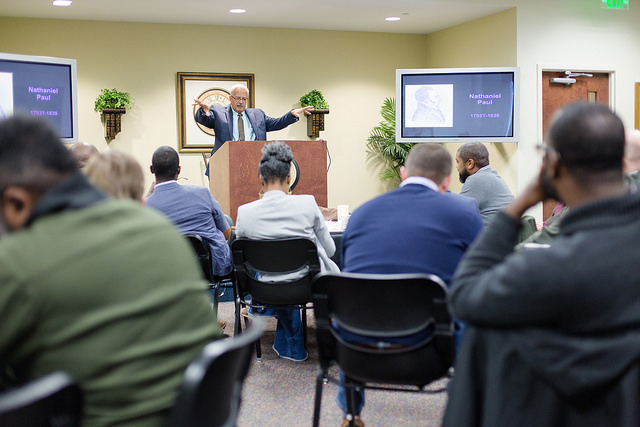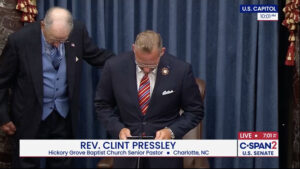
LOUISVILLE, Ky. (BP)–The value of human life demands the use of capital punishment in a just society, R. Albert Mohler Jr. said on a television forum in January.
The Southern Baptist Theological Seminary president joined three other panelists on “Kentucky Tonight,” a live hour-long program broadcast on Kentucky Educational Television. The topic was the death penalty and whether it should be strengthened or weakened through the Kentucky legislature.
“The logic of capital punishment is often misunderstood,” Mohler said. “The logic is this: The sanctity of human life is so important, the worth and dignity of every single human life is so important, that to take that life in hostile murder is to forfeit one’s own right to life.
“Society, in demanding that ultimate sanction, is simply underlining how important and valuable every life really is.”
Joining Mohler on the panel were Stephen Ray, assistant professor of theology and philosophy at Louisville Presbyterian Theological Seminary; Dave Stengel, Jefferson County commonwealth’s attorney; and Ernie Lewis, Kentucky’s public advocate.
Stengel and Lewis debated the political side of the death penalty, Mohler and Ray the theological tenets of it.
Mohler quoted Romans 13 and Genesis 9 as the biblical foundation for capital punishment.
“This goes back to a biblical logic,” he said, “where in Genesis 9 in the Noahic covenant the Lord Himself said, ‘If a man sheds another man’s blood by murder, then by man his blood shall be shed.'”
While Ray agreed that a Scriptural argument can be made for the death penalty, he said the New Testament has a much broader theme. Ray said that the right to forfeit a life does not belong to mankind.
“If there is a consistent witness throughout the New Testament — while you recognize the authority of the state to impose the death penalty — you also recognize that you as a people who are renewed in the faith are not to participate in that,” he said. “You are to participate in acts of goodness and acts of grace.”
But Mohler, quoting 20th-century theologian Reinhold Niebuhr, said that a biblical view of love demands justice.
“He stated it well: ‘Love without justice is mere sentimentality.’ Our goal must be love,” Mohler said. “Our motivation must be love. But justice is one of the requirements of love. It is not the opposite of love.”
The two men discussed several other aspects of the death penalty, including:
— Implementation of a moratorium on the death penalty.
Two years ago Illinois Governor George Ryan imposed a halt to executions in his state, saying he was disturbed that more people on death row were being exonerated than were being put to death.
Some death penalty opponents want such a moratorium in Kentucky. Ray said he supported such a move, but Mohler said he opposed a moratorium.
Mohler said DNA testing should be exploited “to the fullest – both to ascertain guilt and innocence. But I would not support a moratorium, because I think more appropriately we should take a case by case basis. (If) there is any serious question those protections are in place to ensure that adequate review is given.
“But there is no justification for putting justice on hold.”
— Eliminating the death penalty for youthful offenders
Mohler said current law — which states that people under the age of 16 cannot be executed — should not be changed.
“We have to admit that that’s legally arbitrary,” he said. “There are immature 25 year olds and mature 15 year olds. … We have a jury system. We have protections in place. We have an appeals process, and we need to trust the people who are asked to try the case to take all of these matters into due consideration.”
Before someone who committed a crime as a minor is tried for murder and sent to death row, an “even higher standard of proof” than normal should be met, Mohler said.
— The deterrent effect of the death penalty.
“In terms of a deterrent, it seems that if it was a deterrent, the time we could have known it was when we had public executions,” Ray said. “Some of the most lawless times in our nation were times when we engaged in massive public executions.”
While Mohler agreed that the death penalty has become less and less of a deterrent, he said there are underlying reasons.
“Over the last three decades in America, we’ve pretty much made it certain that the deterrent effect has been minimized, because of the length of time between the trial and any execution,” he said. “The public has been robbed of the opportunity to know the connection between the crime and the punishment. What you have is a prison system in which execution is simply reported in the paper, and there is no longer any public sense of why justice cried out for this to be done.
“That will mitigate the deterrent effect for certain.”
–30–
This program can be viewed online at https://www.ket.org/cgi/db/ket/dmps/Programs?id=KYTO0918.


